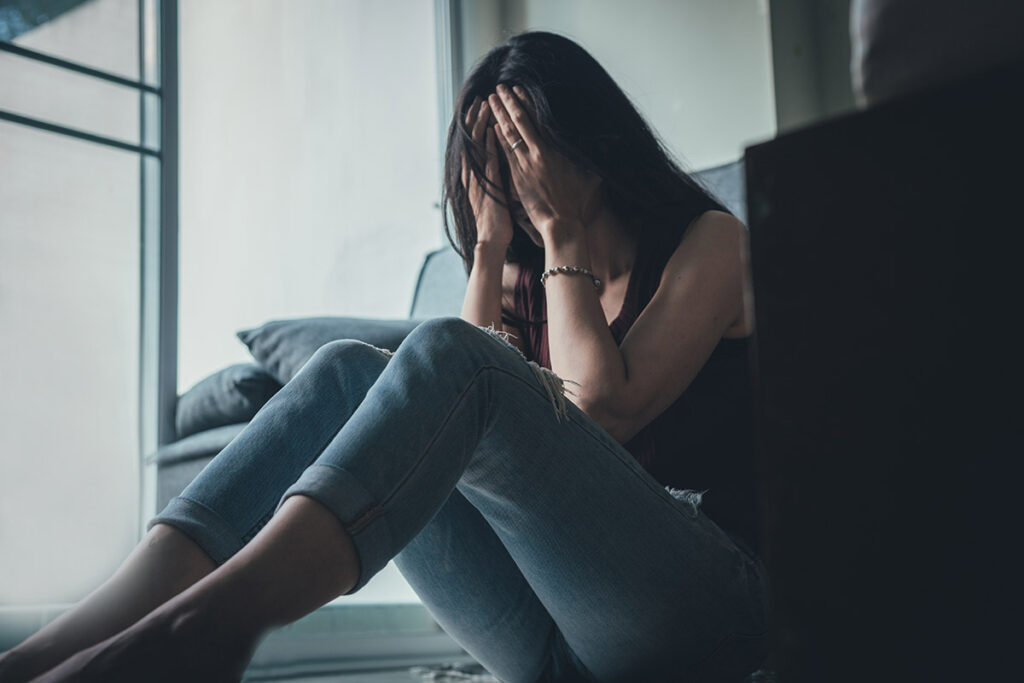Introduction: Understanding Panic Attacks
We’ve all experienced moments of anxiety, but what happens when it spirals out of control? Panic attacks can be debilitating and frightening experiences, often leaving individuals feeling helpless and overwhelmed. This article will provide an in-depth look at the experience of anxiety attacks, helping you to better understand what they are, why they occur, and how to cope with them.
What is a Panic Attack?
A panic attack is a sudden and intense surge of fear or anxiety that often strikes without warning. They can last from a few minutes to hours, and can cause a wide range of physical and emotional symptoms. It’s important to recognize that panic attacks are a normal part of the human experience, and they can happen to anyone.
The Anatomy of a Panic Attack: What Happens During an Anxiety Strike
1. The Trigger
Anxiety attacks often begin with a specific trigger, which can vary from person to person. Common triggers include stress, specific situations, or even certain thoughts or memories. Identifying your triggers is the first step in managing anxiety attacks effectively.
2. Physical Symptoms
During anxiety attacks, the body goes into “fight or flight” mode. This can cause a variety of physical symptoms, such as rapid heartbeat, shortness of breath, chest pain, sweating, trembling, and dizziness. These symptoms can be incredibly distressing and may even mimic a heart attack or other serious medical issue.
3. Emotional Symptoms
In addition to physical symptoms, anxiety attacks can also cause intense emotional distress. Common emotional symptoms include a sense of impending doom, fear of losing control, feelings of detachment or unreality, and an overwhelming desire to escape the situation.
4. The Peak
A panic attack typically reaches its peak within 10 minutes of onset, after which the symptoms gradually begin to subside. The duration of the attack can vary, but most last for 20 to 30 minutes.
5. The Aftermath
Once a panic attack has subsided, it’s not uncommon to feel exhausted, embarrassed, or even fearful of experiencing another attack. This can lead to further anxiety and avoidance of situations or places associated with panic attacks.
How to Cope with Panic Attacks
1. Recognize the Symptoms
Understanding the symptoms of anxiety attacks can help you recognize what’s happening and prevent the situation from escalating.
2. Practice Deep Breathing
Deep, slow breaths can help to calm your body and reduce the intensity of anxiety attacks.
3. Use Grounding Techniques
Grounding techniques, such as focusing on your surroundings or engaging in a simple physical activity, can help to bring you back to the present moment and reduce feelings of panic.
4. Seek Professional Help
If you’re struggling with panic attacks, it’s important to consult with a mental health professional who can help you develop a treatment plan tailored to your needs.
5. Create a Support Network
Having a strong support network can make a huge difference in coping with panic attacks. Reach out to friends, family, or support groups to share your experiences and gain valuable insights.
Conclusion: Overcoming Panic Attacks
While panic attacks can be incredibly distressing, it’s important to remember that they are a normal part of the human experience. By understanding the triggers, symptoms, and coping mechanisms, you can take control of your anxiety and ultimately overcome panic attacks.
Frequently Asked Questions
1. What causes anxiety attacks?
anxiety attacks can be triggered by a variety of factors, including stress, specific situations, or certain thoughts or memories.
2. How long do anxiety attacks usually last?
anxiety attacks typically last for 20 to 30 minutes, but they can vary in duration. They often peak within 10 minutes of onset and gradually subside afterward.
3. Can anxiety attacks cause long-term health problems?
While anxiety attacks themselves are not dangerous, chronic anxiety and repeated anxiety attacks can have negative effects on your overall mental and physical health.
4. Are there any effective treatments for panic attacks?
Yes, there are several effective treatments for anxiety attacks, including therapy, medication, and various self-help techniques. It’s important to consult a mental health professional to determine the best treatment plan for you.
5. Can I prevent panic attacks?
While it may not be possible to completely prevent panic attacks, you can take steps to manage your anxiety and reduce the frequency of attacks. This includes identifying triggers, practicing relaxation techniques, and seeking professional help if necessary.



